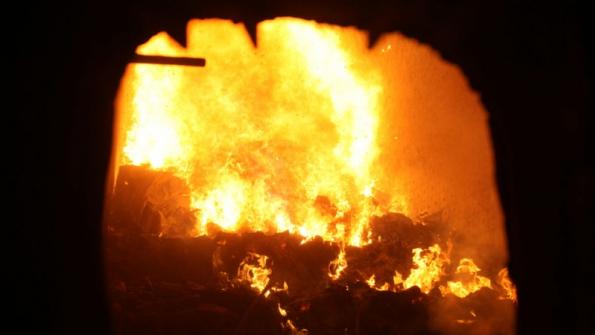Incinerators have long been a controversial topic when it comes to waste management. While some argue that they provide a solution for reducing landfill waste and generating energy, others have raised concerns about the environmental impact of incinerators. In this article, we will explore the potential environmental impacts of incinerators and what you need to know about their effects on the environment.
One of the most significant concerns regarding incinerators is the release of harmful pollutants into the air. When waste is burned, it produces emissions such as dioxins, sulfur dioxide, nitrogen oxides, and particulate matter. These pollutants can have serious health implications for nearby communities, including respiratory problems, cardiovascular issues, and even cancer. In addition, these emissions can contribute to air quality degradation, impacting the overall environmental health of the area.
Another environmental impact of incinerators is the generation of ash residue. After waste is burned, the remaining ash contains heavy metals, dioxins, and other toxic substances. This ash must be carefully disposed of to prevent further environmental harm, as it can contaminate soil, water sources, and wildlife habitats. Improper disposal of ash can lead to long-term environmental damage and pose a threat to human health.
Furthermore, the energy generation from incinerators is not as environmentally friendly as it may seem. While it is true that incinerators can produce energy from the burning of waste, the process is still a source of greenhouse gas emissions. In fact, the carbon footprint of incineration is significant, as it releases carbon dioxide and other greenhouse gases into the atmosphere. This contributes to global warming and climate change, further impacting the environment on a larger scale.
In response to these concerns, some argue that modern incinerators are equipped with advanced pollution control technologies to minimize emissions. While it is true that these technologies can reduce the release of pollutants, they do not eliminate the environmental impact of incineration entirely. Additionally, the effectiveness of these measures can vary depending on the specific incinerator and its operation.
Despite the potential drawbacks, incineration is still considered a waste management option in many communities. However, it is essential to carefully consider the environmental implications and weigh them against potential benefits. Alternative waste management strategies, such as recycling, composting, and waste reduction, can provide more sustainable solutions that minimize the environmental impact.
In conclusion, the environmental impact of incinerators is a complex issue that requires careful consideration. While incineration can help reduce landfill waste and generate energy, it also has the potential to release harmful pollutants, generate toxic ash residue, and contribute to greenhouse gas emissions. As a consumer and citizen, it is important to be aware of these environmental impacts and advocate for sustainable waste management practices in our communities. By doing so, we can work towards a cleaner and healthier environment for future generations.



